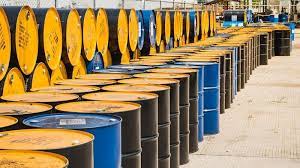Investment in oil and gas projects has declined and sanctions have reduced interest in the country’s first licensing round.
The United States has been imposing sanctions on South Sudan’s oil industry for four years.
The aim was to prevent oil money from funding the civil war that had been raging since 2013.
By reducing the ability of companies and organisations to provide revenue to the South Sudanese government, US officials felt they could put pressure on President Salva Kiir to end the conflict in his country.
“Whether or not you believe that the sanctions have helped bring about peace, the war has ended. The heads of government signed a peace agreement in 2018 and formed a unified government in 2020. Why, then, do the sanctions that were meant to end the war remain in place,” wondered NJ Ayuk, the executive chairman of the African Energy Chamber in a statement seen by APA.
According to him, what was initially intended to do good is now doing harm.
The sanctions are hindering foreign investment in South Sudan’s oil and gas projects and, as a result, preventing the country from exploiting its natural resources (3.5 billion barrels of proven oil reserves) for the benefit of its people.
“Sanctions make it unnecessarily difficult for South Sudan to use oil and gas to foster economic growth, create jobs and business opportunities, build capacity and – most importantly – develop gas-to-electricity programmes that can reduce the country’s severe energy poverty,” Ayuk said.
The US sanctions on South Sudan’s oil and gas production have targeted 15 companies and government units, ranging from international and local oil companies operating in South Sudan to the Ministry of Petroleum and the Nile Petroleum Corporation, the country’s national oil and gas company.
—
TE/ard/lb/as/APA


